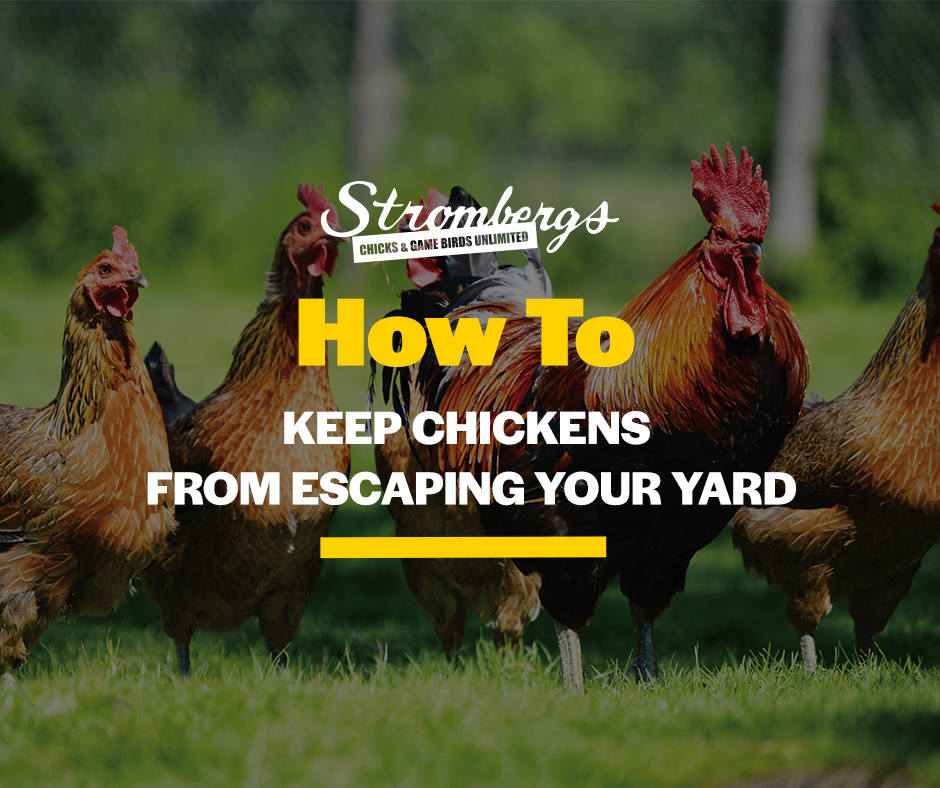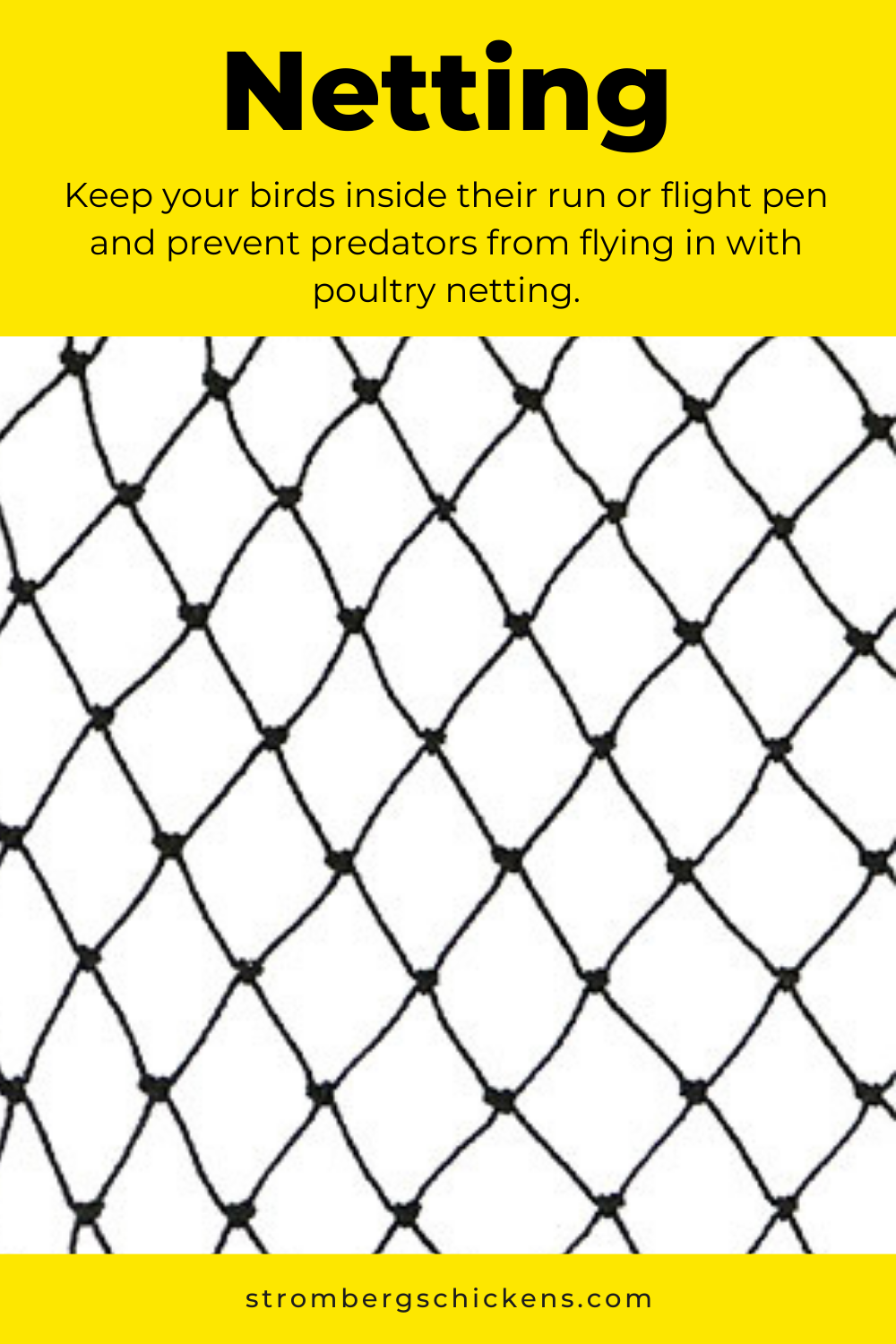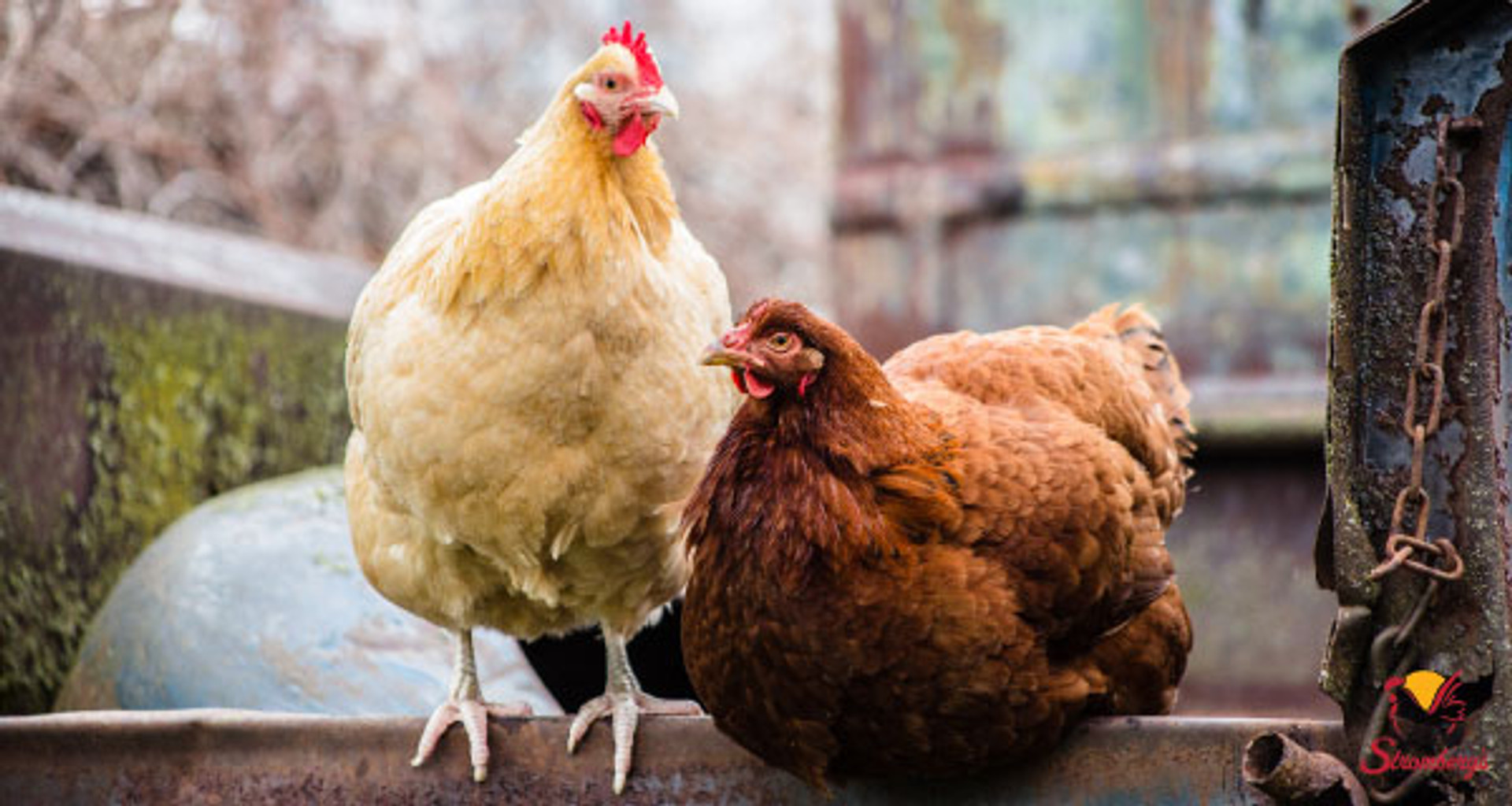How to Keep Chickens from Escaping Your Yard
Your backyard chickens might be unable to soar across long distances, but that doesn’t stop many curious hens from hopping the fence occasionally. When your free-range chickens get loose, they’re more vulnerable to local foxes and other predators.
They might also wander through your neighbors’ yards or along roads, causing a lot of hassle for everyone. How about the impact on your egg production if they decide to nest outside the yard? Everyone likes their fresh eggs collected from inside a clean coop.
However, this doesn’t mean you must always keep your backyard chickens under lock and key. There are a few ways to ensure your birds’ safety and maintain your flow of fresh eggs without completely limiting their freedom.
Let’s review some simple hacks to raise chickens in your yard.

Use a Chicken Run
Backyard chicken runs are a great solution for those who live in busy areas, deal with predators too often, or simply have particularly flighty birds. Like a chicken coop, a run also provides extra protection from predators, keeping your chickens safe at night. When you attach a run to your chicken coop, you give your flock enough space to explore, forage, and hang out without letting them wander too far from home.
Make sure you have plenty of space in the run and attached chicken coop to accommodate all of your hens. How many chickens you have will determine how much space you need. If the area is too cramped or lacks resources, it can lead to squabbling and bullying within your flock, which can affect your egg production.

Clip Their Wings
For many chicken keepers, clipping their wings is the most important part of keeping chickens from escaping your yard. This is an easy and simple process that involves trimming the primary flight feathers—the long feathers at the front of the wing. You only need to clip one wing, to effectively throw off the hen’s balance when she tries to fly. The primary feathers grow back whenever the chicken molts, so you’ll have to repeat this process once a year to keep your feathery friends safely on the ground.
Provide Adequate Space and Environment
Creating a secure and stimulating environment within the yard can help deter chickens from escaping. Providing ample space, appropriate shelter, and engaging activities such as perches, dust baths, and foraging areas within the yard keeps chickens content and less inclined to wander. When chickens are content and mentally stimulated within their yard and chicken coop, they are less likely to seek opportunities outside the yard.
Secure the Base of Your Fence
Securing the base of your fence prevents your backyard chickens from escaping. It creates a barrier that prevents them from squeezing through or digging under the fence. Chickens are agile and resourceful creatures that can find small gaps or weak spots in the fence to slip through. Here are several practical tips to secure the base of your fence:
- Close gaps: Inspect your fence for any openings or gaps chickens can fill. Use wire mesh or hardware cloth to cover these gaps, ensuring the openings are small enough to prevent chickens from passing through.
- Bury wire mesh: Dig a trench along the perimeter of your fence and bury wire mesh or hardware cloth deep into the ground. Extend the mesh horizontally away from the fence and then curve it back towards it, creating an underground barrier the chicken can't dig under.
- Concrete footing: For extra security, consider using concrete footing along the base of your fence. This creates a solid and impenetrable barrier that chickens can't dig through.
- Poultry netting: Attach poultry netting or chicken wire to the bottom of your fence, extending it a few inches into the ground. This prevents chickens from attempting to crawl under the fence.
- Secure gate openings: Pay special attention to them, as they can be weak points. Install sturdy latches and ensure the gaps between the gate and the fence are minimal or covered with wire mesh.
Minimize Attractants Outside the Yard
Eliminating or minimizing potential food sources or enticing elements near the yard is essential. This includes securing garbage bins, compost piles, and spilled or accessible food that might attract chickens.
Firstly, clear the immediate vicinity outside the yard of enticing food sources, such as uncovered compost heaps or spilled grains, as these can attract chickens to venture out.
Use solid barriers like privacy screens or hedges to obstruct the chickens’ view of the outside world. This can help reduce their curiosity to explore beyond the yard.
Training and Behavioral Considerations
Training and behavioral considerations are crucial in preventing chickens from escaping your yard.
Firstly, training your chickens to recognize and respond to specific cues can help establish boundaries and reinforce their understanding of their designated area. Consistently using verbal commands and positive reinforcement techniques, such as rewards or treats, chickens can learn to associate specific actions with desired outcomes. For example, teaching them to return to their chicken coop when the sun goes down will help you manage their coop-yard interaction better—you don't want to be running after them at dusk. Consistency and repetition are essential in training chickens, as they respond well to routine and familiar patterns.
Combining proper training techniques and addressing their behavioral needs can create a safe and secure environment that discourages chickens from escaping.
Install Reliable Fencing
If you want your birds to roam freely without leaving your yard, chicken fencing is the way to go. Even lightweight chicken breeds can’t get that far on their wings. Add wire fencing or mesh on top of existing fences to help keep your birds inside. You can also consider an electric chicken fence to provide protection from predators. Some chicken keepers also use overhead poultry netting to ensure their flock always stays within the yard.
Overhead netting is also a great way to keep flying predators like hawks or owls away from your flock. Netting is typically installed around the yard's perimeter or above the chicken enclosure, while overhead covers are placed on the yard. These measures create a physical barrier restricting the chickens' movement and keeping them within the designated area.
Chicken netting is made of durable materials such as mesh or wire, which are difficult for chickens to penetrate or escape from. The netting should be securely fastened to posts or structures to ensure it remains taut and prevents gaps or openings.
Best Fences to Keep Your Chickens In Your Yard
When choosing the best fence to keep your chickens in your yard, there are a few options:
Chicken Wire Fence
The 1 inch galvanized wire hex fencing is a popular and cost-effective option for containing chickens. It consists of galvanized wire woven into small hexagonal openings. The lightweight nature of chicken wire makes it easy to handle and install. It provides adequate protection from predators like raccoons and dogs. However, it may not be effective against larger predators like coyotes. To enhance security, consider burying the chicken wire at least 12 inches deep to prevent digging underneath.
Welded Wire Fence
Welded wire fence is another excellent choice for chicken containment. It is constructed using thicker, welded steel wires, providing increased strength and durability compared to chicken wire. This type of fence offers better protection against predators and is available in various heights and mesh sizes to suit your needs. Welded wire fences may require additional supporting posts for stability, especially in areas prone to high winds.
Electric Fence
Electric fences can be a highly effective deterrent for both predators and chickens. They consist of electrified wires that deliver a harmless but memorable shock to any animal that comes into contact with them. The psychological effect of the electric shock often discourages predators from attempting to breach the fence. However, electric fences require a reliable power source and regular maintenance to ensure proper functioning. Electric fences are known for their versatility, affordability, and easy installation.
Chicken Wire and Netting
Chicken wire, also known as chicken netting or poultry netting, is a versatile option for raising chickens in enclosures. It is typically made of lightweight yet durable materials such as polyethylene or PVC. Poultry netting is easy to install and provides excellent protection against most predators of backyard chickens. The netting is available in various heights and mesh sizes, allowing customization according to the size of your flock. Securing the bottom of the netting is essential to prevent predators from digging underneath.
Privacy Fence
If you live in a neighborhood with restrictions on raising chickens and other livestock or if you desire a more aesthetically pleasing option, a privacy fence might be suitable for your chicken enclosure. These solid fences, typically wood or vinyl, offer complete privacy and prevent curious onlookers or potential predators from viewing or disturbing your chickens. Ensuring the privacy fence is constructed with tight joints is crucial.
Bottom Line
Now that you know all about raising chickens in your yard for fresh eggs or meat, sourcing your essentials from the best is important. Here at Stromberg’s Chickens, we have everything you need to raise chickens. Search our coops, nesting boxes, and fencing, or even buy eggs and chicks for your next flock.

